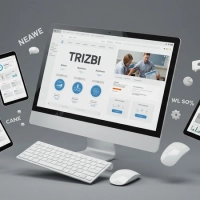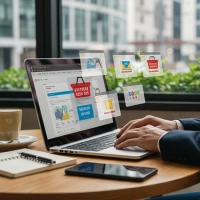
Unknown Facts About Cookie Policy in B2B
Before examining the cookie policy heading in B2B, it is necessary to answer the question of what a cookie is. Cookies are small texts sent to the browser by the visited website. The content of these texts may include information that will help the system recognize the visitor on their next visit, as well as data needed to increase the user experience.
After the personal information protection law came into effect in our country, we got used to receiving warnings about cookies on the sites we visited. Accepting or not accepting the provisions about cookies in these warnings is completely up to the user. When the user approves the recording and use of cookies, they also allow the collection of data about their habits.
What is the Purpose of Using Cookies?
For B2B companies, improving user experience is an important step in increasing sales. B2B systems are living systems and have a shopping environment where commerce continues 24/7. For this reason, user data must be processed under certain procedures and turned into a factor used to increase user experience. For example, a buyer may be interrupted in some way while ordering a product group they like. Although it is possible to find various software solutions in such cases, the easiest method is undoubtedly the use of cookies.
Advantages of Using Cookies
When creating a cookie policy in B2B , the advantages of using cookies by the company should also be taken into consideration. So what are the advantages that are directly related to the cookie policy in B2B?
Session: Thanks to a cookie assigned to a user who is logged into the B2B system, you can prevent the user from having to deal with login procedures on their next visit.
Personalization: It is possible to determine personalized advertising strategies in light of the data obtained from cookies. If we need to understand this method, which third-party cookies frequently use, in more detail; we can explain it as you starting to see ads related to a product you need shortly after searching for that product.
Customer Tracking: Cookies are another way to analyze how your potential customers found your b2b platform, whether they came organically or through advertising, and their behavior on the site.
Views: The number of pages a visitor views on your b2b website can show you how serious the customer is about purchasing. However, how often a visitor visits your site is also important data and can be easily obtained through cookies.
Use of Cookies by Businesses

A B2B platform that uses cookies should clearly state its cookie policies to visitors in B2B. Accordingly, visitors should fully understand how the cookies recorded work, what they are used for and their benefits and approve them. You can easily observe that B2B companies that use cookies extensively provide their customers with a multiple-choice approval process regarding the cookie policy in B2B. This is also an indication that each platform shapes its own cookie policy in B2B. In addition, the approval process for cookies, which is a legal obligation, should be fully approved by the visitor, as well as being fully responsible.
How to Prepare a Cookie Policy in B2B?
As we mentioned in the previous title, b2b companies are obliged to explain to their visitors in detail what and how cookies will be used and to obtain their approval. Sites generally use various warning methods and approval windows for this purpose. By clicking on the approval link in these warnings and windows, the visitor also accepts the cookie policy in b2b determined by the seller. Cookies cannot be recorded and used without obtaining the visitor's approval.
Trizbi , Turkey's first and only B2B e-commerce ERP software, allows you to actively use cookies in the website service it offers. In addition, it has features that allow you to show stylish warnings to visitors with customizable cookie approval methods and designs.























